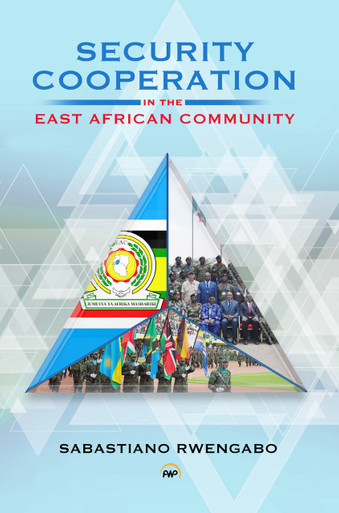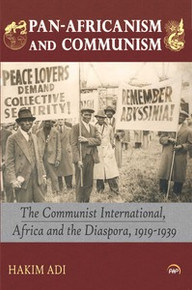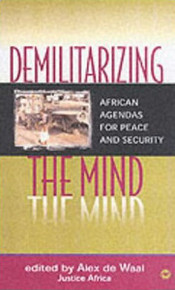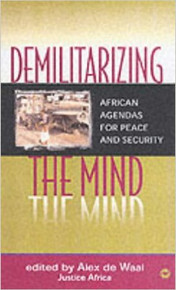Categories
Categories
Authors
Authors
- Home
- Sociology/Anthropology
- SECURITY COOPERATION IN THE EAST AFRICAN COMMUNITY, by Sabastiano Rwengabo
SECURITY COOPERATION IN THE EAST AFRICAN COMMUNITY, by Sabastiano Rwengabo
SECURITY COOPERATION IN THE EAST AFRICAN COMMUNITY, by Sabastiano Rwengabo
Product Description
Security Cooperation in the East African Community explains why EAC Partner States cooperate on several transnational security issues but eschew cooperation on transnational armed rebellions yet these conflicts have regional and transnational security implications too. It reveals that Sovereignty Concerns engender different Sovereignty Bargains that determine whether or not any given security issue will be included in the EAC’s security agenda and relevant cooperation modalities developed and implemented on that issue. Evoking principles of respect for state sovereignty, States cooperate on what are designated as common “coordination-problem” security issues the cooperation on which states believe would not compromise their sovereign authority. Terrorism and proliferation of small arms and light weapons (SALWs) fit here. Contrarily, states eschew cooperation on transnational rebel conflicts, designated as sensitive “critical-sovereignty” security issues, for fear that cooperation on them threatens states’ ultimate political authority. These variations in security cooperation outcomes result from different sovereignty bargains. Normal sovereignty bargains, which are rooted in Low-Level Sovereignty Concerns, led to the emergence of regional counterterrorism measures and controls against the proliferation of SALWs. In contrast, non-bargaining strategies, that are rooted in High-Level Sovereignty Concerns, frustrated demands for cooperation on rebel conflicts in two ways: first, judicial opposition from the East African Court of Justice (EACJ) absolved the EAC’s non-involvement in Kenya’s conflict in which the state reportedly violated human rights during counterinsurgency operations against the rebel Saboat Movement for the Defence of Land (SMDL). Second, purposeful silence by the EAC Council of Ministers thwarted efforts by the East African Legislative Assembly (EALA) and other actors to evolve a regional solution to Uganda’s Lord’s Resistance Army (LRA) rebellion. These findings shed important light on the contention between the need for cooperation and the desire to preserve states’ meta-political authority.
************************************************
Rwengabo’s meticulous study of the limits to security co-operation offers key practical and theoretical insights into the way sovereignty impedes the East African Community’s ultimate goal of political federation and the Pan-Africanist dream of a United States of Africa. The theoretical implications of this book extend beyond Africa and have relevance for all attempts to promote regional cooperation and supra-national political communities. For a continent wary of the failure of the international community to deal with problems like the 1994 Rwandan genocide, Rwengabo dares to ask the difficult but necessary question: Why do African states avoid cooperating on security issues over which they claim to have been betrayed by the international community? Rwengabo’s book is an essential read for anyone interested in international relations, strategic and peace studies, regional integration, and Pan-Africanism.
—Bruce Heilman, Department of Political Science and Public Administration, University of Dar es Salaam
ABOUT THE AUTHOR
SABASTIANO RWENGABO is a Uganda- and Singapore-trained Political Scientist. He was a President's Graduate Fellow at the National University of Singapore (NUS) where he also taught International Relations, International Security, and Civil Military Relations, before re-joining the Social Sciences community in Africa in 2015. Rwengabo has research interests and publications on Civil-Military Relations, International Politics/Security, regional security measures under the African Union (AU), Regionalism, Urban Security, Democratization, and Nation Building.
CATEGORY
Political Science, Sociology/AFRICA
PUBLICATION YEAR
2017
PAGE COUNT
358 Pages
 Loading... Please wait...
Loading... Please wait... 








